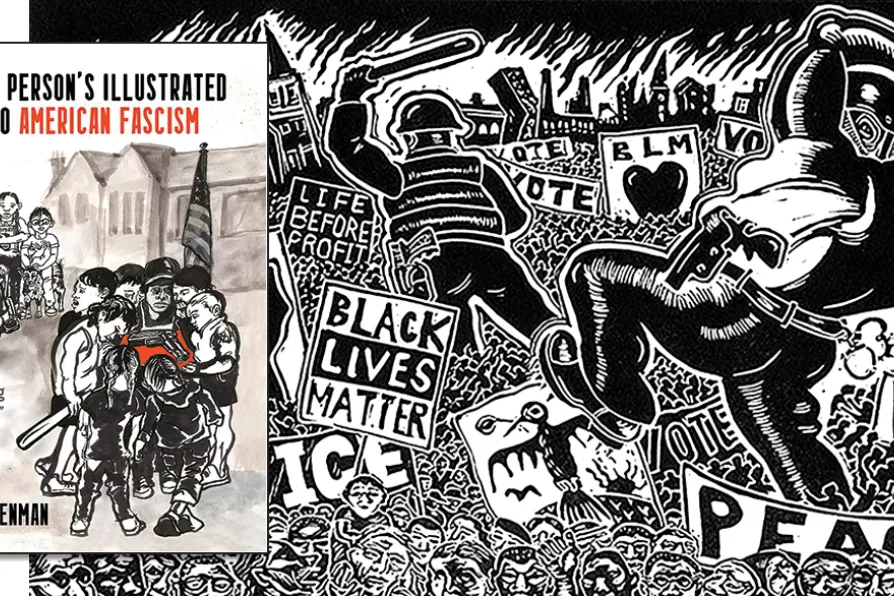JOHN GREEN, MARIA DUARTE and ANGUS REID review Fukushima: A Nuclear Nightmare, Man on the Run, If I Had Legs I’d Kick You, and Cold Storage

 Illustrations Sue Coe
[Courtesy of OR Books]
Illustrations Sue Coe
[Courtesy of OR Books]
The Young Person’s Illustrated Guide to American Fascism
by Sue Coe and Stephen Eisenman
OR Books, £17.99
IT may seem somewhat contradictory to admire a book and be critical at the same time.
This book is undoubtedly praiseworthy, simply on the basis of its aim in exposing creeping fascism in the US and for the powerful series of linocuts and drawings by Sue Coe that visualise the danger.
In his introduction Profesor Stephan Eisenman provides an excellent and succinct history of fascism and also provides a running commentary on Sue Coe’s art and the role of a political artist today. It is an ideal handbook for teachers and students seeking to discuss fascism.

JOHN GREEN welcomes a remarkable study of Mozambique’s most renowned contemporary artist

NICK MATTHEWS previews a landmark book launch taking place in Leicester next weekend

RON JACOBS welcomes the translation into English of an angry cry from the place they call the periphery

These are vivid accounts of people’s experiences of far-right violence along with documentation of popular resistance, says MARJORIE MAYO









